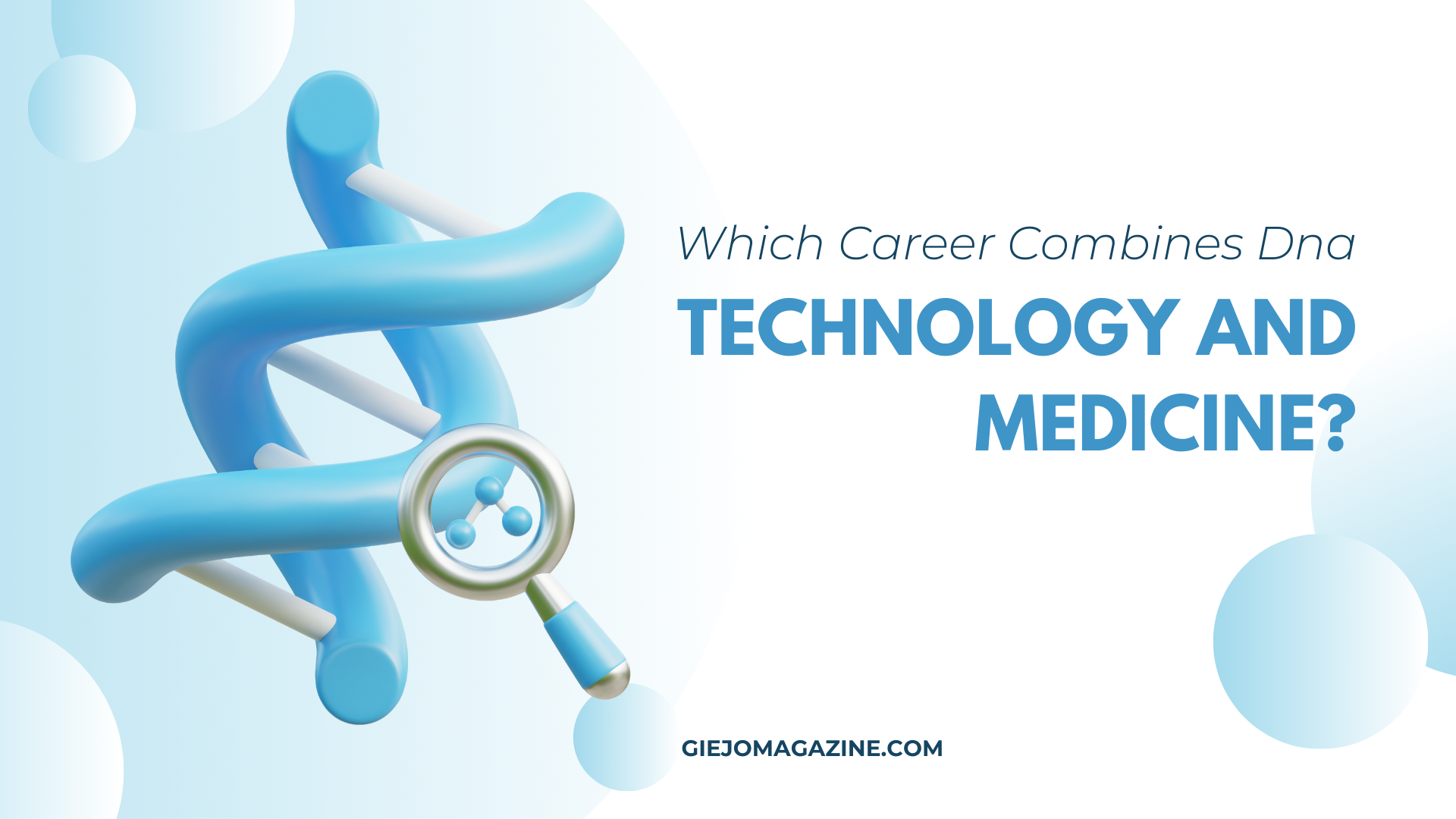In today’s world, advancements in DNA technology are reshaping the medical field, paving the way for a variety of career opportunities that combine both medicine and molecular biology. If you’re passionate about understanding how DNA impacts human health and want to make a difference in medical science, there are several exciting career paths to explore. Let’s delve into some of the top careers that merge DNA technology with medicine.
1. Genetic Counselor
Genetic counselors play a crucial role in helping individuals and families understand the implications of genetic conditions. They use DNA testing to assess genetic risks and guide patients through decision-making processes. Genetic counselors work closely with physicians to interpret test results and recommend preventive measures or treatment options based on genetic information. This role requires a strong background in genetics, medical knowledge, and counseling skills.
Key Responsibilities:
- Provide genetic counseling for inherited diseases
- Interpret genetic test results
- Educate patients and healthcare providers about genetic risks
2. Genomics Research Scientist
Genomics research scientists are at the forefront of using DNA technology to explore how genes influence health and disease. These professionals often work in laboratories, using cutting-edge technologies like CRISPR and next-generation sequencing to conduct research on genetic diseases, cancer, and personalized medicine. The ultimate goal is to discover new ways to treat or prevent diseases based on genetic insights.
Key Responsibilities:
- Conduct research on genetic factors related to diseases
- Develop new diagnostic tools and therapies based on genomic data
- Collaborate with medical professionals and other researchers to translate findings into clinical applications
3. Molecular Biologist
Molecular biologists study the molecular mechanisms of DNA, RNA, and proteins. In a medical context, molecular biologists play a significant role in understanding diseases at the cellular and genetic levels. They work on developing genetic tests, exploring gene therapies, and identifying biomarkers for early disease detection. This career combines laboratory work with clinical applications, making it a key player in advancing precision medicine.
Key Responsibilities:
- Study gene expression and regulation
- Develop genetic assays for diagnostics
- Collaborate on clinical trials and drug development
4. Bioinformatics Specialist
Bioinformatics specialists combine biology, computer science, and statistics to analyze large sets of genetic data. Their work supports medical advancements by interpreting complex genetic data, identifying patterns in DNA sequences, and making sense of how these patterns relate to health and disease. Bioinformatics plays a key role in personalized medicine, enabling healthcare providers to tailor treatments based on genetic profiles.
Key Responsibilities:
- Analyze genomic data to identify genetic markers for diseases
- Develop algorithms and software for analyzing genetic data
- Assist in the development of personalized treatment plans
5. Clinical Geneticist
Clinical geneticists are medical doctors who specialize in diagnosing and treating genetic disorders. They use DNA testing and other molecular diagnostic tools to identify genetic conditions, recommend treatments, and provide ongoing care. By combining their expertise in genetics with clinical medicine, clinical geneticists are essential for the management of genetic disorders such as cystic fibrosis, Huntington’s disease, and Down syndrome.
Key Responsibilities:
- Diagnose and treat genetic disorders
- Interpret genetic test results and integrate them into treatment plans
- Advise patients and families on genetic conditions and inheritance patterns
6. Pharmacogenomics Specialist
Pharmacogenomics is an emerging field at the intersection of pharmacology and genetics. Pharmacogenomics specialists use genetic information to predict how individuals will respond to different medications. This personalized approach to prescribing drugs helps minimize adverse reactions and improve treatment outcomes. With the increasing availability of genetic testing, pharmacogenomics is becoming an integral part of modern medicine.
Key Responsibilities:
- Study the relationship between genes and drug responses
- Develop personalized drug regimens based on genetic profiles
- Collaborate with healthcare providers to optimize patient treatments
7. DNA Forensic Scientist
While often associated with criminal justice, DNA forensic science has important medical applications as well. Forensic scientists analyze DNA samples to identify individuals, which can be used to solve cases involving genetic diseases or conditions in medical investigations. Their expertise is also critical in identifying hereditary conditions and understanding genetic predispositions in families.
Key Responsibilities:
- Analyze DNA samples for medical and criminal investigations
- Work with law enforcement and medical professionals to identify genetic conditions
- Provide expert testimony in legal cases involving DNA evidence
How to Get Started in DNA Technology and Medicine Careers
Many careers that combine DNA technology and medicine require advanced education in genetics, molecular biology, and medicine. Here are a few steps to get started:
- Obtain a relevant degree: Start with a bachelor’s degree in biology, genetics, or a related field. A master’s or doctoral degree is often required for more specialized roles such as genetic counseling or genomics research.
- Gain hands-on experience: Internships, laboratory work, and research projects are essential for gaining practical experience.
- Stay updated with advancements: DNA technology is a rapidly evolving field. Pursuing continuing education and certifications can keep you up to date with the latest trends and techniques.
Conclusion
The combination of DNA technology and medicine is revolutionizing healthcare and opening up exciting career opportunities. Whether you’re interested in research, clinical practice, or personalized medicine, there are numerous paths to explore that will allow you to make a significant impact on patient care and health outcomes. If you’re passionate about genetics and medicine, this dynamic field is a perfect fit.
